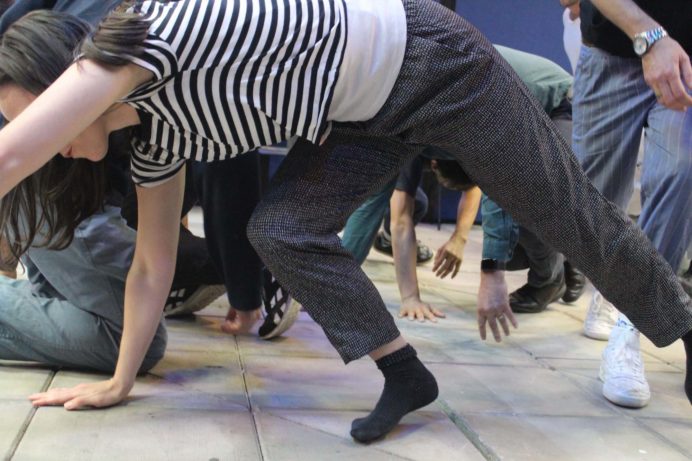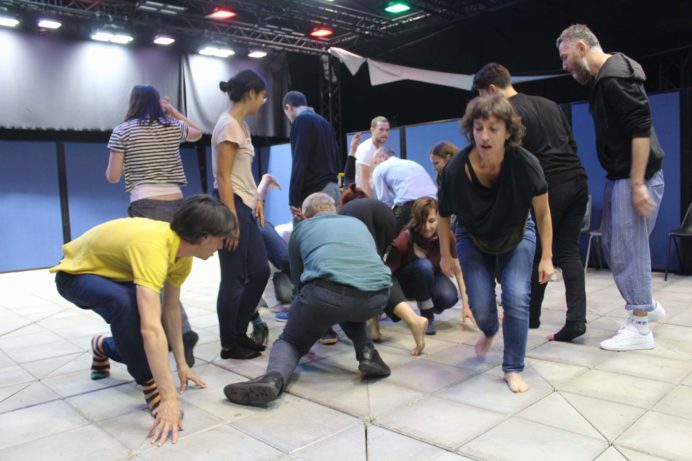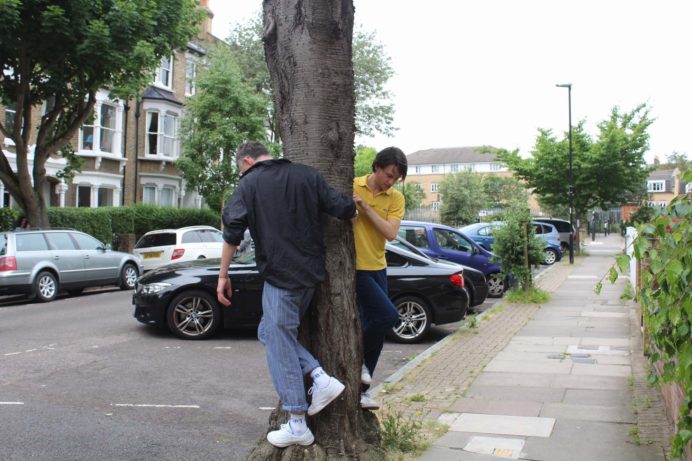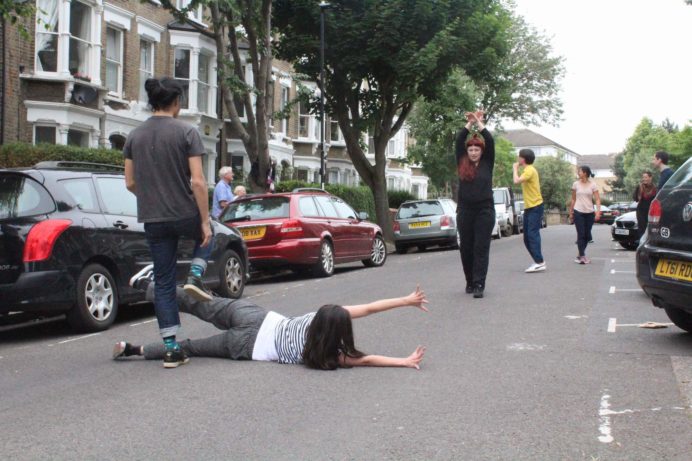Choreographing the City: improvisatory design
If loneliness and depression (two of the main mental health issues facing cities in the global North) are symptoms of urban cultures of speed and efficiency, how can urban design re-choreograph the way people move in cities? Engineering, with a focus on eliminating friction from urban travel, needs new tools to test and plan for forms of mobility based around other values.
This practical workshop will investigate how ideas from choreographic research could inform the way that engineers understand the relationship between travel, urban design, cultures of movement, and wellbeing.
As part of the project If one keeps walking, Hagit Yakira is undertaking a series of choreographed promenade performances that aims to stretch the boundaries between the everyday action of walking and the artistry of dancing. Following an introduction at UCL’s Pedestrian Accessibility Movement Environment Laboratory (UCL PAMELA), Yakira will lead a walk focusing on different elements of travel that challenge the dominance of forward motion: slowing down, and speeding up, stopping, connecting, interacting and watching.
Re-assembling at PAMELA and using the laboratory space, we will focus on how the spaces traveled through might be re-designed around expanded modes of movement. As well as drawing attention to the values assumed in urban engineering, we aim to test the potential of improvisatory movement as a technique within design processes.



